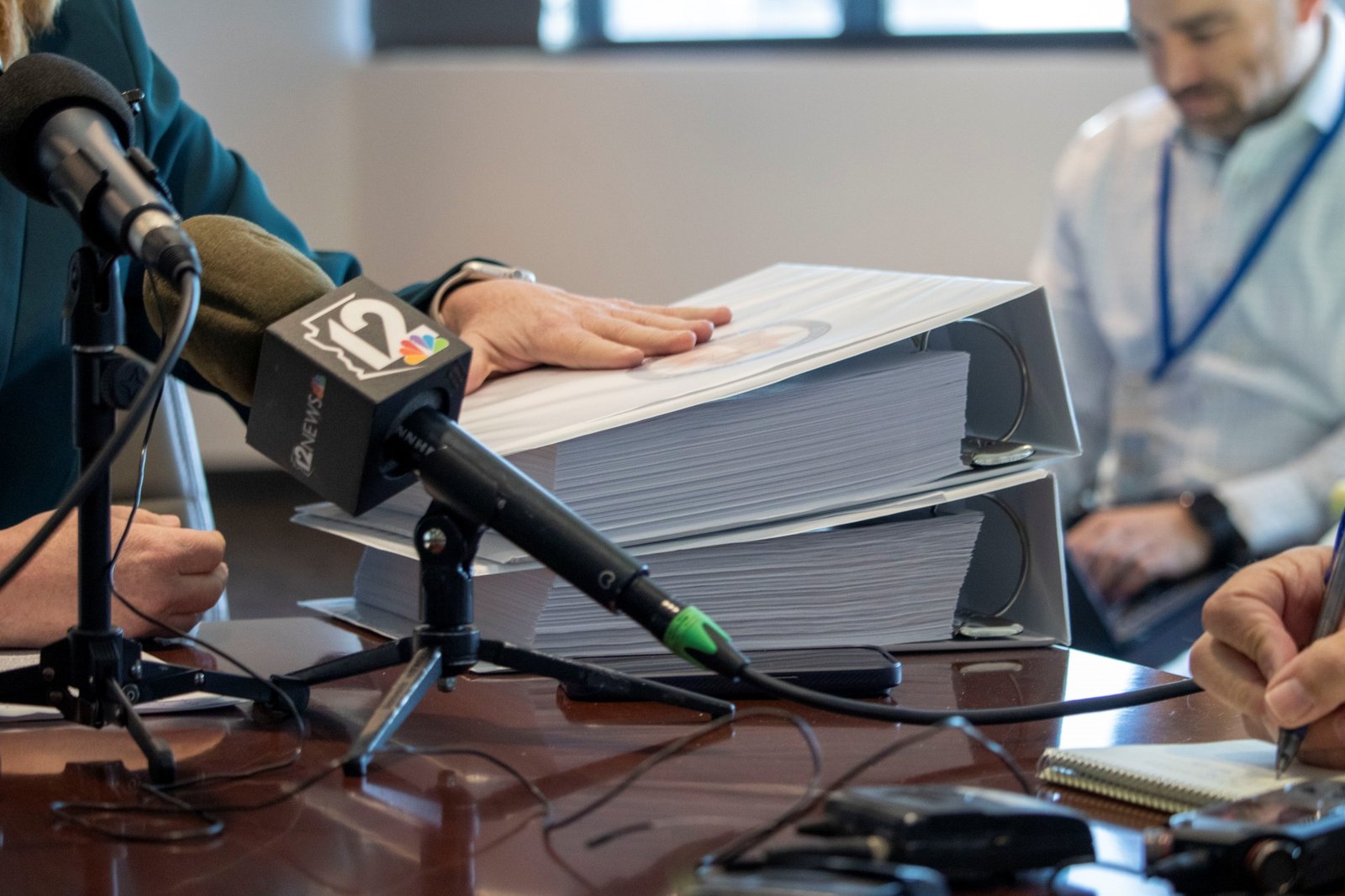abortion access
AG Kris Mayes Unveils Bold Strategy to Shield Arizona from Trump’s ‘Unacceptable’ Policies

Arizona Attorney General Kris Mayes announced her intent to resist anticipated abortion and immigration policies from the incoming administration of President-elect Donald Trump. During a press briefing, she referenced a printed copy of the controversial 900-page Project 2025, a conservative manifesto spearheaded by the Heritage Foundation.
Project 2025 aims to transform the U.S. federal government structure under Trump’s potential presidency, with contributions from over 100 conservative organizations. Notably, the proposal includes extreme measures such as banning abortion nationwide and increasing the executive branch’s control over federal agencies.
Despite Trump’s disavowal of the plan, former aides, including John McEntee, remain heavily involved in its formulation. Mayes characterized the project’s proposed executive orders as unconstitutional, citing specific provisions aimed at reinstating the Comstock Act of 1873, which would effectively enact a nationwide abortion ban.
She asserted that these provisions are unacceptable, arguing they violate both the U.S. Constitution and Arizona’s privacy statutes. “It is my job to uphold both the Arizona and Federal constitution,” she emphasized.
Arizona’s recent Proposition 139 enshrined abortion rights in the state’s constitution, yet federal measures could override state protections. With discussions within Trump’s circle about national abortion bans, Mayes is poised to defend Prop. 139 against expected legal challenges from anti-abortion advocates.
In addition, Mayes expressed her commitment to opposing immigration policies from the forthcoming administration. She labeled the potential repeal of DACA, which protects undocumented individuals brought to the U.S. as children, as a “line in the sand.” Trump’s mass deportation promises have been criticized for potentially harming the national economy.
Having witnessed the consequences of Trump’s first administration’s immigration policies, Mayes shifted from the Republican to the Democratic party. She specifically condemned the proposed migrant camps associated with mass deportations as a troubling possibility that could lead to abuses.
Concerns over due process for individuals caught in such mass deportation scenarios prompted Mayes to voice her worries about U.S. citizens being unintentionally swept into deportation efforts. The Attorney General also reaffirmed her determination to continue legal action against individuals associated with the Trump 2020 fake elector scheme, maintaining that Trump’s presidency would not derail her case.
Earlier this year, a grand jury indicted 18 people linked to the scheme, which included notable Arizona political figures. Mayes revealed that there had been intentions to indict Trump and additional legislators, but this was halted by her office.
Despite the recent elections favoring Republicans, Mayes is exploring collaborative opportunities with the opposition. Of particular concern is how opioid settlement funds are allocated within the state. The diversion of these funds to Arizona’s prison system has sparked controversy, prompting Mayes to pursue legal avenues to rectify the situation.
As the new administration takes shape, Mayes is prepared for potential legal challenges and has been coordinating with her counterparts in other states. She acknowledged the Democratic party’s underwhelming performance in recent elections and called for a candid assessment of voter turnout issues.
In response to questions about Vice President Kamala Harris’s prospects amid the change in administration, Mayes emphasized the importance of preparedness. “Hoping for the best but planning for the worst,” she noted, expressing her office’s readiness to confront the implications of Project 2025.


















